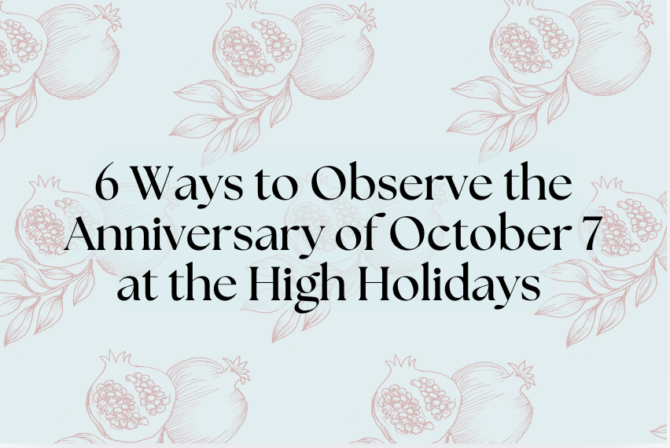You see blood and it changes everything. You go from being unharmed to wounded, from ritually ready to ritually unready, and sometimes from being pregnant to losing that pregnancy. And that’s what happened to me–at 10 weeks pregnant, responding to a middle of the night cry from my 3-year-old and then dashing to the bathroom before popping back in bed–I saw blood when I least expected it. Jessica Fechtor wrote about her pregnancy loss in her memoir “Stir,”: “Something red. I saw it before I saw it, my brain needed a sec to catch up.”
It similarly took a moment for me to register what I was seeing, but soon my body was being pin-pricked with dread. Back in bed it took a long time to fall asleep with the worry running through me of what seeing blood meant, what it would change. The next morning, consulting with my midwife over the phone, she told me, “It could be nothing or it could be something,” and I should come in later that day to get a better sense of what was happening with my body.
I saw more blood when we were at the hospital for a sonogram. And together my husband Sam and I saw a fuzzy black-and-white picture of a 9-and-1/2-week baby-shaped-fetus with no heartbeat. “Will you be able to reach out to friends so you don’t feel lonely?” our midwife asked. Sam turned to me and said “I think we may be one of a few of our friends who has not yet experienced a miscarriage.” So many people go through this, but not enough people talk about it. In the midst of utter sadness I felt grateful to our friends who had been transparent with us about their own experiences. It let me pick up the phone, send an email to those friends for whom I now had a slew of specific questions, and they shared with open hearts. Amidst my tears I wanted to know–how long did you bleed, did you need any intervention, did you go to work, when did you start trying again? I very much wanted to let my body take care of expelling everything on its own, and amazingly it did.
I saw such bright red blood that week I swore off a certain color of nail polish forever. I went from laying plans in my head for a summer baby, and for how to soon share the news with friends and family, to focusing my mental capacity on dealing with what felt like seven days of on-and-off labor, and on not being overly grouchy with my toddler. For all that time that I was wrapped up in my own thoughts and my own body, I went about my regular routine. Yet I was anticipating some point when I would retreat to my home for a few hours for what my midwife described as a time I might bleed excessively to pass the silver-dollar-sized embryonic sac. Waiting for this event was, as Sam put it, like “waiting for the birth of death.” He shared with me what he wrote that day when he was unable to think about anything else:
“I’m waiting for a birth, like when Zoe was due, but there’s only pain at the end of this one. I’m waiting for a death, like when we knew this last summer that my Grama was going to die. But this time I’m waiting for a death that’s already happened. I’m waiting for the birth of death, so I can have my breakdown and move on.”
Then, after a week, the blood just stopped–without my ever experiencing one isolated, dramatic moment. My little army of friends and family (those who had had personal experiences with pregnancy loss and those who had not) kept checking in on me after that first intense stage, still giving me space to cry. Eventually it was my time to return to the mikveh. One friend had written about her experience at Mayyim Hayyim after a miscarriage; I asked the staff to send me the ceremony she described. They gave me two versions–one for an individual, and one for a couple. I was moved by the latter and so was Sam, so we decided to make a joint appointment. Not unlike our time at the mikveh before the birth of our daughter, we came together to read words that choked us up, but this time for such different reasons…
Read the rest of the article at Mayyim Hayyim’s blog.
Read More:
3 Awful Questions Not to Ask a New Parent (And What to Ask Instead)
My Daughter’s Asthma Turned Me into an Overbearing Mom, Whether I Wanted To Or Not
To the Woman Who Told Me My Kids Don’t Belong in Synagogue







